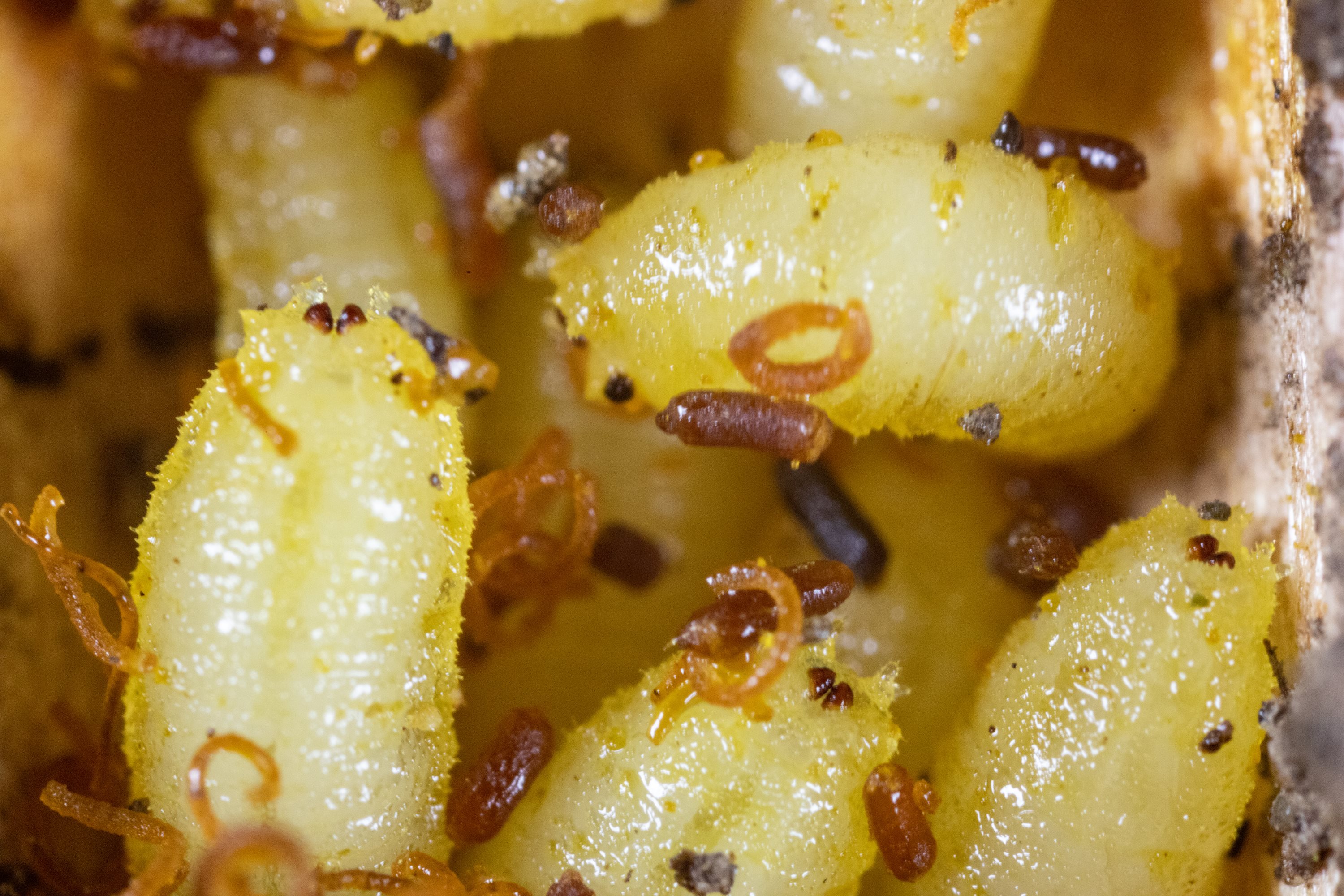Houdini fly found in Washington
The Washington State Department of Agriculture (WSDA) has confirmed reports of Houdini fly (Cacoxenus indagator) in Washington State. The Houdini fly is a kleptoparasite. It does not attack mason bees directly, but lays its eggs on the pollen meant for the mason bee young. The Houdini fly maggots then emerge and consume the food before the mason bee larvae, which causes them to starve.
Houdini fly is believed to be permanently established in Washington. However, mason bee producers and home hobbyists can reduce the impact on managed mason bees, which in turn will also help wild mason bee populations, through good management practices.
Mason bees are native pollinators that are active for a short time in early spring. They are one of the few reliable pollinators during cool spring weather, which is important for many fruit crops for farmers and gardeners.
Houdini fly is believed to be permanently established in Washington. However, mason bee producers and home hobbyists can reduce the impact on managed mason bees, which in turn will also help wild mason bee populations, through good management practices.
Mason bees are native pollinators that are active for a short time in early spring. They are one of the few reliable pollinators during cool spring weather, which is important for many fruit crops for farmers and gardeners.

The white grubs are Houdini fly maggots. Photo credit: Crown Bees

Houdini fly maggots in mason bee brood chamber. Photo credit: Crown Bees

Adult Houdini fly emerging from mason bee nesting tube. Photo credit: Flickr user gbohne
Managing mason bees to control Houdini fly
- Harvest mason bee cocoons – Open mason bee nesting materials before they emerge in the spring and destroy Houdini fly maggots.
- Control adult mason bee emergence – If you cannot open nesting materials, place your nesting materials in a fine mesh bag and close tightly. As the bees emerge, release the mason bees daily and kill any Houdini flies.
- Only use nesting materials that allow you to open, inspect, and harvest cocoons. Visual inspections can greatly reduce Houdini fly populations.
- Only purchase pest-free mason bee cocoons. Before purchasing mason bees, ask the provider how they harvested and whether they inspected the cocoons for Houdini fly.
Contact Us
Questions? Contact us at pollinators@agr.wa.gov or 1-800-443-6684.
